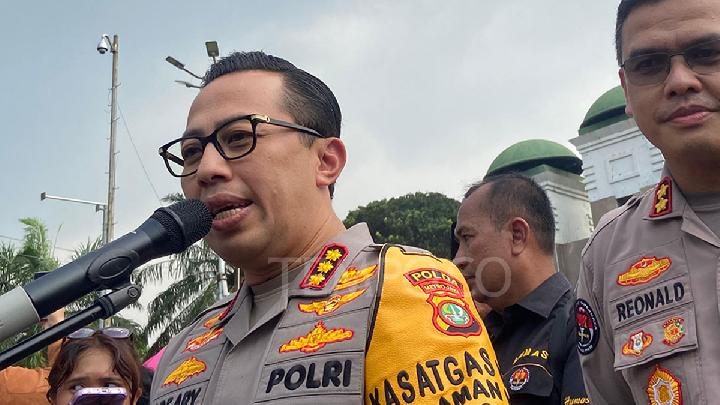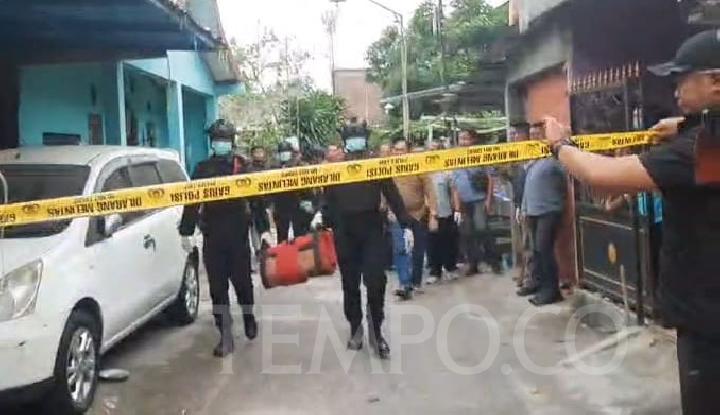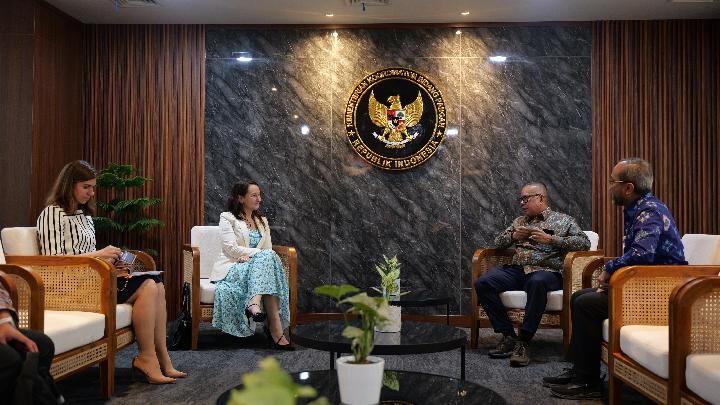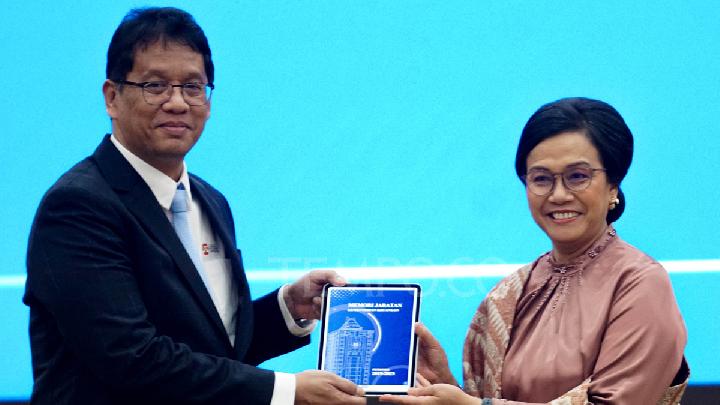TEMPO.CO, Jakarta - PT Sari Teknologi is developing the 22nd out of a total of 27 types of robots exhibited by the Indonesian National Police in the peak event of the 79th Anniversary of Bhayangkara, on July 1. The entity is also the creator of the smart robots (Ropi) and chef robots available at the Nutritious Free Food (MBG) booth.
When met by Tempo at the Robopark, Pluit Village Mall, Jakarta, on Monday, July 7, 2025, Yohanes Kurnia Widjaja, the CEO of PT Sari Teknologi, said that his company has developed various types of robots over the past decade. "Starting from educational robots," said Yohanes.
According to Yo, as Yohanes is familiarly called, the first educational robot of PT Sari Teknologi includes an AI backpack, AI teaching, and robotics tool designed for high school to college students, as well as robotics learning aids from primary to high school levels that have been developed since 2010. The company is also noted as the founder of the World Robot Games (WRG), an international robot competition held since 2015.
After excelling in the education sector, PT Sari Teknologi began to develop the manufacturing robot segment, such as the one currently used by Toyota Astra Motor. Robotic research continued in the entertainment field. The company worked on both dancer robots and humanoid robots, some of which were as tall as 30 to 130 centimeters.
"Why is entertainment robot development necessary? Because children or people will be more interested," said Yo.
With a plethora of ongoing projects, the company then created Robopark, a jumbo showcase to introduce various types of robots to the public. Yo said that the facility has already produced various new types of robots, such as information provider robots.
Yo, who teaches at Gunadarma University, mentioned breakthroughs in floor-sweeping robots that can be used in apartments and hotels. There are also robots for public and retail services, guest greeters and food deliverers in restaurants, as well as smart robots to be used by the Indonesian National Police.
Robots also extend into three-dimensional, visual-based fields of education and quality control. In the healthcare sector, there are respiratory assistance robots (ventilators), emergency respiratory aids (resuscitators), robohelm, which is a robotic head aid, and real-time communication technology or telepresence.
"We have been progressing step by step. There's education, training, products, and their implementations," said Yo.
The company also entered the realm of defense and security through AI, surveillance, and tank robots for explosive handling (IOD). "Everything never escapes from what is called autonomous (automatic systems) and AI," said Yo, who also holds the position of director of technology, infrastructure, and data in the Indonesian Artificial Intelligence Society (IAIS) organization.
All the ideas of developing these robots, Yo continued, were rooted in a basic understanding of electronics, communication systems, control systems, and AI algorithms. All of these foundations are summarized in the AI backpack, an educational tool developed at the beginning of PT Sari Teknologi's formation.
He admitted that not all robots made by PT Sari Teknologi were built from scratch. The innovations of these robots all came entirely from the nation's children. "But the invention is not 100 percent," he said.
For example, the chess robot created in 2022 was built with precision robotic arms made in China. The arm device was integrated with sensors and AI systems. As for components such as robotic arms, tank systems, and AI, the company already had them, so their development was not too complex.
Humanoid robots and dog robots exhibited by the Indonesian National Police during the Bhayangkara Anniversary are now one of the prominent innovations of PT Sari Teknologi. Human robots developed since 2015 were initially inclined to the entertainment, manufacturing, and support (assistance) sectors. Its function has now expanded to the security sector.
Funding Issues Hindered Progress
Yo said that funding limitations had at times hindered the development of robots in his company. The journey of PT Sari Teknologi has had its ups and downs. "Research needs funds. Sometimes on, sometimes off. Money is also insufficient," he said.
PT Sari Teknologi then shifted its management focus to developing wheeled robots for the service sector because they are more stable and can carry heavy loads. Yo recounted discussing with a Chinese robotic company, Unitree, which eventually became the supplier of the basic AI system devices, structures, and kinematics for PT Sari Teknologi.
"With this structure, we can develop our own," he said. "We emulate them, and add what we lack," said Yo.
Smart dog robots, which were later exhibited by the Indonesian National Police, were also developed gradually by the company. The robot has undergone continuous improvements, evolving from a simple initial model to one with a range of motion of 30 to 35 degrees.
According to Yo, innovation requires observation and modification. "It's not only building from scratch. We observe, imitate, and then modify."
Editor's Choice: Indonesian Police Robots: Why the Rp3bn Price Tag Versus Alibaba's?
Click here to get the latest news updates from Tempo on Google News


















































